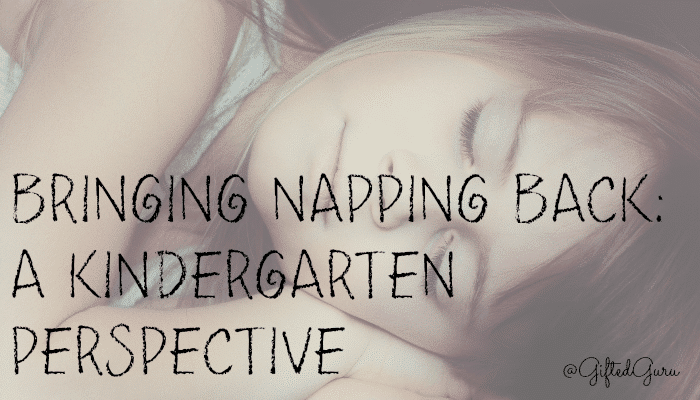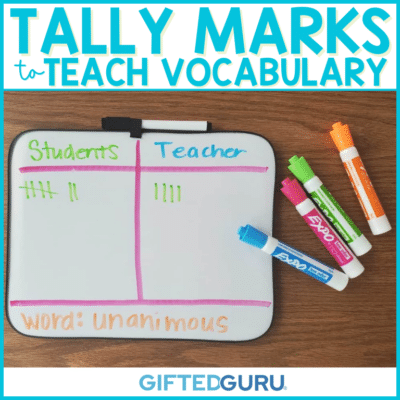
To sleep, perchance to dream learn. – Shakespeare (kind of)
When I went to kindergarten (shout out and apologies to my teacher, Mrs. Beasley), I needed crayons and a nap mat. Today’s kindergarteners need graphing calculators and pens.
No nap map required. Or welcome.
Fifteen years ago, the New York Times published an article about the lack of nap time in today’s kindergarten, and the situation has deteriorated since then.
What happened to kindergarten nap time, and how can we get it back?
Here’s what we know:
Kindergarten-age children need a lot of sleep.
Somewhere between 10 and 13 hours is the recommended amount.
They’re not getting it, in case you were wondering. Sleep-deprived children are no laughing matter. They’re cranky.
They often behave like the witch in the Wizard of Oz right after the water gets thrown on her (along with accompanying insults hurled).
They can’t learn. They won’t eat well.
It’s not pretty. Trust me.
How can you tell if a child isn’t getting enough sleep? According to one of the leading sleep researchers in the country, Dr. William Dement of Stanford, here are some things to ask:
- Is your child hard to wake?
- Does your child have trouble concentrating?
- Does your child fall asleep spontaneously during the day?
- Does your child sleep in on weekends?
Read his awesome book The Promise of Sleep to learn more about the amazing benefits of sleep for all of us.
Just because your child has trouble falling asleep does not mean your child isn’t tired. In fact, the reverse is often true. Over-tired children frequently find it difficult to go to sleep.
Trouble getting your little one to buy on the whole “sleep is crucial” thing? The Sleep for Kids website created by the National Sleep Foundation is just for them!
Sleep helps learning.
We can’t learn if we don’t sleep, and it is backwards to say that we can’t give kids a rest time in kindergarten because they have too much to learn. If they don’t sleep, you might as well take all those worksheets and…well, I think you know what I’d say about worksheets in kindergarten.
I’m a teacher. I’m a school administrator. I get it, and I say the people who are creating the learning objectives for kindergarten have lost track of what we know about brain development in young children.
Young brains are sponges, yes, but we wet those sponges with play, not worksheets.
Naps increase retention. This has been demonstrated in studies with adults and children.
Resting helps behavior.
Let those kiddos rest, and they’ll spend less time in time out. One study I think was particularly well done appears to show that staying awake too long makes it harder to control your negative emotions (think “tangry” – you’re tired and angry).
One of the study’s authors said, “Our results suggest that napping may be a beneficial intervention for individuals who may be required to remain awake for long periods of time by enhancing the ability to persevere through difficult or frustrating tasks.”
For a five-year-old, the school day is a long period of time, especially when you take into account how early some children get up.
When you hear that school age children no longer need naps, understand that to the traditional understanding, five-year-olds are preschool age children. School age is typically six.
Just like GT kids can get misdiagnosed with other co-existing conditions, a lack of sleep can lead to misdiagnosis as ADHD because it can lead to defiance and hyperactivity. Who doesn’t know what that sleepy punchiness feels like?
Going to the mat.
Not that long ago, I saw a school bus go by with literally a dozen kids asleep, their heads propped awkwardly against the rattling windows, and I literally began to cry.
Since when is exhausted children our educational imperative?
So if you are in a position of power in a kindergarten, fight for naps.
If you’re a parent, make the argument.
Anyone who says that there is too much learning to be done to allow a rest time is ignoring the facts to the detriment of children and their brains.
Here’s something that should not be news to anyone: play is the work of children, and force-feeding schoolishness in kindergarteners is counterproductive.
Some kids won’t nap, sure. They can listen quietly to music, take a break from the sensory overload of school, look at books or read, breathe, the possibilities are wide and restful.
I also wrote an article about sleep for the Mensa Bulletin, and you can read suggestions for getting young ones to sleep in that.
Sleep on.
Unless you’re in kindergarten. In that case, grab your graphing calculator and get working.




